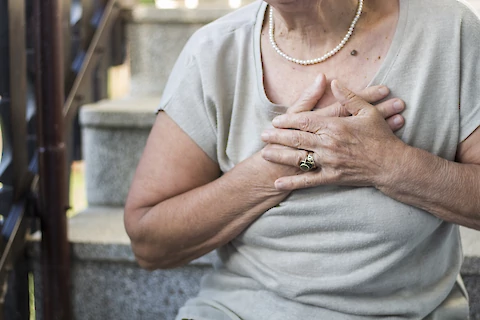
As February marks American Heart Month, it's an opportune time for caregivers to familiarize themselves with crucial information related to heart health, specifically concerning seniors. Understanding the signs of a heart attack and knowing how to respond swiftly can make a significant difference in the outcome. By equipping yourself with this knowledge, you can potentially save a life and ensure the highest level of care for your loved one.
Heart Attacks in Seniors
A heart attack occurs when blood flow to a part of the heart is blocked, typically by a blood clot. Seniors are at a higher risk for heart attacks due to age-related changes in the heart and blood vessels, coupled with other health conditions such as high blood pressure or diabetes. The symptoms of a heart attack can vary widely, but common ones include chest pain, shortness of breath, lightheadedness, and feeling weak or fatigued.
Recognizing a Heart Attack
Learning to recognize the symptoms of a heart attack is vital. Men typically experience intense chest pain, while women may have symptoms that are less obvious, such as fatigue, nausea, and fainting. Acting quickly is vital when symptoms occur. The faster you respond, the better the chance of survival and the less damage to the heart.
What to Do During a Heart Attack
In the event of a suspected heart attack, the first step is to call 911 without delay. While waiting for medical help, try to keep the senior calm and encourage them to sit down and rest. Aspirin can also be helpful but should be administered with advice from the emergency operator. It's imperative not to ignore the symptoms or delay seeking medical help, as this might lead to irreversible damage to the heart.
Creating a Personalized Plan with a Doctor
Given the high risk of heart attacks in seniors, having a personalized action plan prepared is essential. This should be developed in partnership with the senior's doctor and may include lifestyle modifications, a medication plan, and specific steps to take if a heart attack occurs. This plan should be reviewed regularly and updated as needed.
Having a detailed action plan not only ensures that all caregivers are on the same page but also that they know precisely what to do under stress. This step is crucial as it minimizes panic and confusion in an already stressful situation, thus making sure that the senior receives medical help as quickly as possible.
Understanding the signs of a heart attack and responding promptly is critical in providing seniors with the best care. Always remember that every second counts when dealing with heart attacks.
Moreover, having a personalized plan created with the senior's doctor can offer a clear roadmap of action to take in such situations. This plan can ensure that you're prepared and able to provide the best assistance in the event of a heart attack.
Get Help Caring for Senior Loved Ones
If you're in Lake Worth, Boynton Beach, Delray Beach, or Atlantis and need professional assistance in caring for a senior, don't hesitate to contact Senior Helpers South Palm Beach. We are committed to providing reliable, compassionate care that meets the unique needs of your senior loved one.